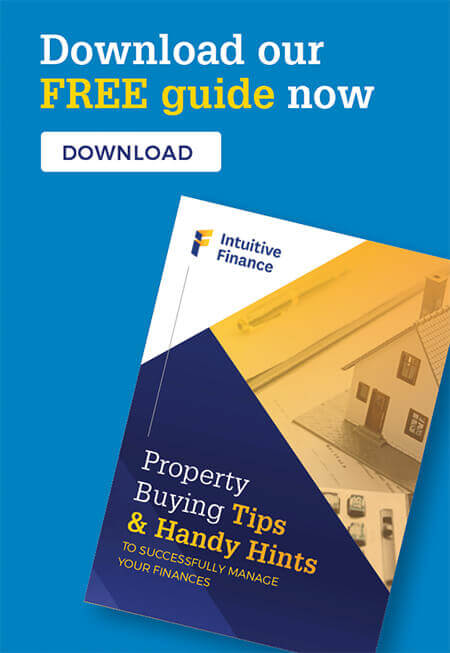Refinancing is one of those things, like exercising regularly, that we know could be good for us but sometimes seems like a lot of effort and not much fun.
There are lots of reasons why it might be a good idea to consider refinancing, and one particular reasons why you should take stock before making the move.
One reason you should NOT refinance
Every now and then your bank will do something that will irritate you.
They don’t pass on a full interest rate cut, or they might start charging for something that was previously free (like paper statements) or won’t budge on your home loan negotiation. Everyone fantasises at one time or another about firing the bank: “You won’t do what I want? Fine! I’ll take my business elsewhere!”
But changing lenders can have big implications for you in terms of cost and time. You need to be absolutely certain about your decision to switch before you make the move.
So being angry with the bank is one reason you should not dump your financier on a whim. It’s far better to take a deep breath and do some homework so you can make a calculated decision to act in your best interests.
In other words, refinance for the right reasons – outcome of what you are seeking to achieve and/or interest rates – not just out of rage.
You’ll make better decisions this way.
Seven reasons to refinance.
So, let’s look at some reasons why you might refinance.
1. Greater borrowing capacity:This is one of the primary reasons we look to assist clients move from lender to another lender, based purely on the outcome that can be achieved. We wrote about this recently here https://intuitivefinance.com.au/your-outcome-or-your-interest-rate-whats-more-important/ and it’s vital that when refinancing, you are very clear on the end goals you wish to achieve. All lenders have different rules and policies and therefore not every client fits into their box. This often means that you have to refinance to ensure that you are able to secure the best possible outcome for your circumstances.
2. Better interest rate: Moving to a different lender to take advantage of a better rate can be a good idea. But, before you make the jump, make sure you’re taking into account the comparison rate (not the advertised rate) and understand all the exit fees and costs associated with the move. Will your position be improved? More than that, will your position be improved enough to make it worth the hassle of changing lenders? A 0.2 per cent interest rate saving may not warrant the cost of a break-free fee from your current lender and the time and effort it takes for you to personally to collate all your financials for the next financier.
There are some great fixed rate offerings at times, but make sure you understand all the pros and cons of this and weigh these up as we wrote about https://intuitivefinance.com.au/when-is-the-right-time-to-fix-your-interest-rates/ to ensure you make an informed decision.
3. Flexibility, or new features: Your loan may not offer all the features you’d like, so it’s time to consider some of the newer financial products that have come to market and are designed to give borrowers more flexibility. Such features could include offset transactional accounts, a line of credit or a redraw facility without fees. There are a range of options to explore here but seek guidance from an expert before you make a decision.
4. Renovation:Time for a new kitchen or bathroom? The quickest, and often most affordable, way to fund these activities is to add to your mortgage amount. The lender will assess the equity in your home against your repayments and decide whether to lend the additional money. An experienced mortgage broker can help with your application to ensure you can borrow the figure needed.
5. Debt consolidation: There’s no doubt that debt reduction is a financial trend capturing the attention of many Australians at present. The number of credit cards in circulation has been falling since 2017, with that fall accelerating during COVID. According to Finder.com.au, in May 2017 there were 16,761,187 credit accounts, and by January 2021 that number had fallen to 13,554,221 – that’s a drop of almost 20 per cent. Debt consolidation – paying off other debts, such as credit cards or personal loans, by adding that debt into the home loan – is one tool that many are using to reduce the amount they pay in loan servicing each month.
6. To buy an investment property:Circumstances change throughout our lives and the terms of the mortgage that we took out early in our home ownership journey may no longer be fit for us. If, for example, you want to buy an investment property, you will almost certainly need to consider refinancing. This, again, is something that will often require the help of a mortgage broker who will know which products are best for clients looking to buy an investment. It is very important to get your loan structuring correct as you enter the property investment phase of your lifetime.
7. Incentives or cashback offers: These shouldn’t be your primary driver to refinance but then again, if you can secure $2,000 to $4,000 as a lender buys your business, then you should consider it for sure. https://intuitivefinance.com.au/are-cashback-offers-worth-it/
Refinancing can be a daunting prospect. It requires research and extensive knowledge about what’s on offer in the lending market in order to match a product to your needs both now and in the future.
Being across all available options is difficult without the assistance of a mortgage broker. They can simplify the choices and help you collate the necessary information to ensure you secure the best possible lending terms for your requirements.
The information provided in this article is general in nature and does not constitute personal financial advice. The information has been prepared without taking into account your personal objectives, financial situation or needs. Before acting on any information you should consider the appropriateness of the information with regard to your objectives, financial situation and needs.
- Timing the Market vs. Time in the Market - July 15, 2024
- On Market vs. Off Market Listings: What’s The Difference - June 17, 2024
- Impact of Victoria’s Land Tax Hike on Property Investors - June 3, 2024










